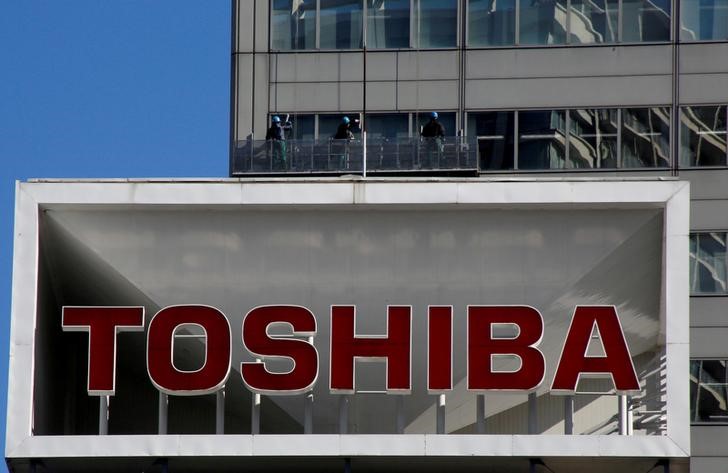TOKYO (Reuters) - Toshiba Corp said on Friday it would not be able to complete an $18 billion deal to sell its prized chip unit by an agreed deadline at the end of March, as it had not received anti-monopoly approval from China.
Failure to meet the deadline gives Toshiba the option of walking away from the sale of the world's No. 2 producer of NAND chips without penalty - a move that some investors have urged it to consider.
But the company said in a statement that it still plans to sell the unit, aiming to finalize the deal as soon as possible.
Toshiba agreed last year to sell the chip unit to a consortium led by U.S. private equity firm Bain Capital to cover liabilities arising from its bankrupt U.S. nuclear unit Westinghouse.
But the conglomerate no longer needs the funds as much, having raised $5.4 billion from a share issue to foreign investors late last year.
Some activist shareholders oppose the sale, saying the $18 billion price tag undervalues the business and that Toshiba should renegotiate with the Bain group or consider an initial public offering.
The chip business currently accounts for most of the company's profit, and Toshiba is struggling to grow other core businesses such as social infrastructure.

Under the deal, it plans to repurchase 40 percent of the chip unit.